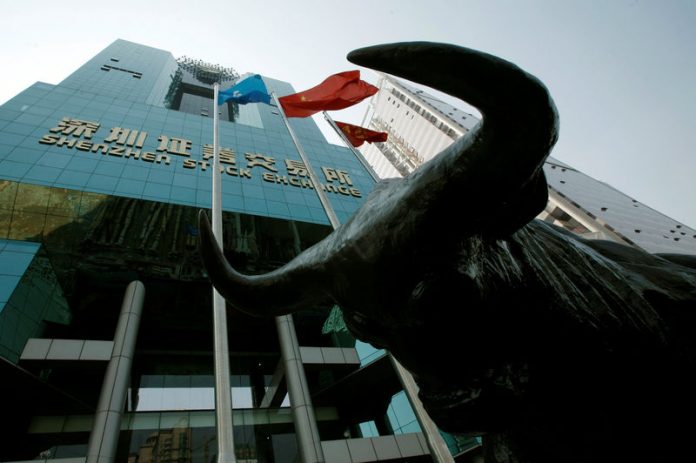Investing
Chinese stocks rose on Tuesday after the government vowed more measures to support economic growth, while most other Asian equities recovered slightly from recent losses.
China’s bluechip Shanghai Shenzhen CSI 300 index rose 0.5%, while the Shanghai Composite index added nearly 1%.
Beijing on Monday vowed to ramp up stimulus efforts in the third quarter, as the country struggles with slowing growth in the face of COVID-19 lockdowns and a potential energy shortage.
The People’s Bank of China also announced a cut to the amount of foreign exchange required to be held by local institutions, indicating that the government plans to keep the yuan from falling any further.
News of the stimulus helped offset concerns over China introducing new COVID-19 curbs in several cities. Local stocks plummeted on Monday, with weakness in Chinese markets spilling over to most other Asian equities.
Growth in China’s economy has slowed drastically this year, pressuring local stocks and the yuan. But Beijing is so far reluctant to scale back its strict zero-COVID policy, which is at the heart of China’s economic woes.
Concerns over more sharp interest rate hikes by the Federal Reserve, after stronger-than-expected U.S. payrolls data last week, also weighed on most Asian markets at the start of the week.
Australian stocks traded sideways on Tuesday ahead of a widely expected interest rate hike by the Reserve Bank (RBA) later in the day.
The RBA is expected to hike its cash rate by 50 basis points to 2.35%- its highest level in eight years. Investors will also be watching for more signals on policy tightening and inflation from the central bank.
Australian stocks have weakened, while the dollar benefited as the RBA embarked on a hiking cycle this year to rein in inflation.
Japanese stocks bucked the trend, trading slightly lower after data showed household spending grew at a slower-than-expected pace in July. The reading, coupled with data showing a slowdown in wage growth, pointed to more pressure on Japanese consumers from surging inflation.




